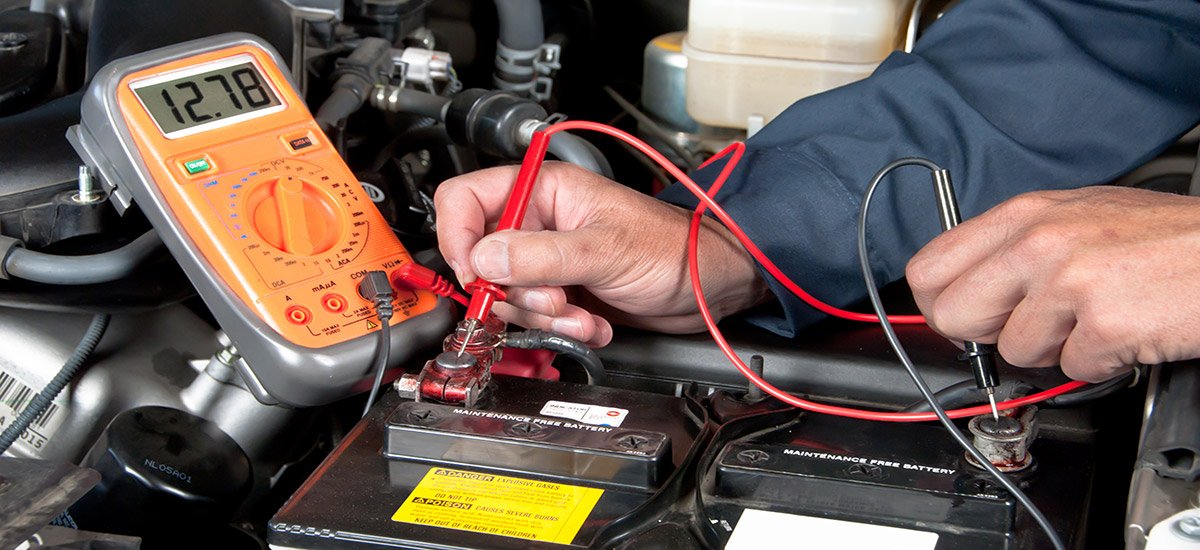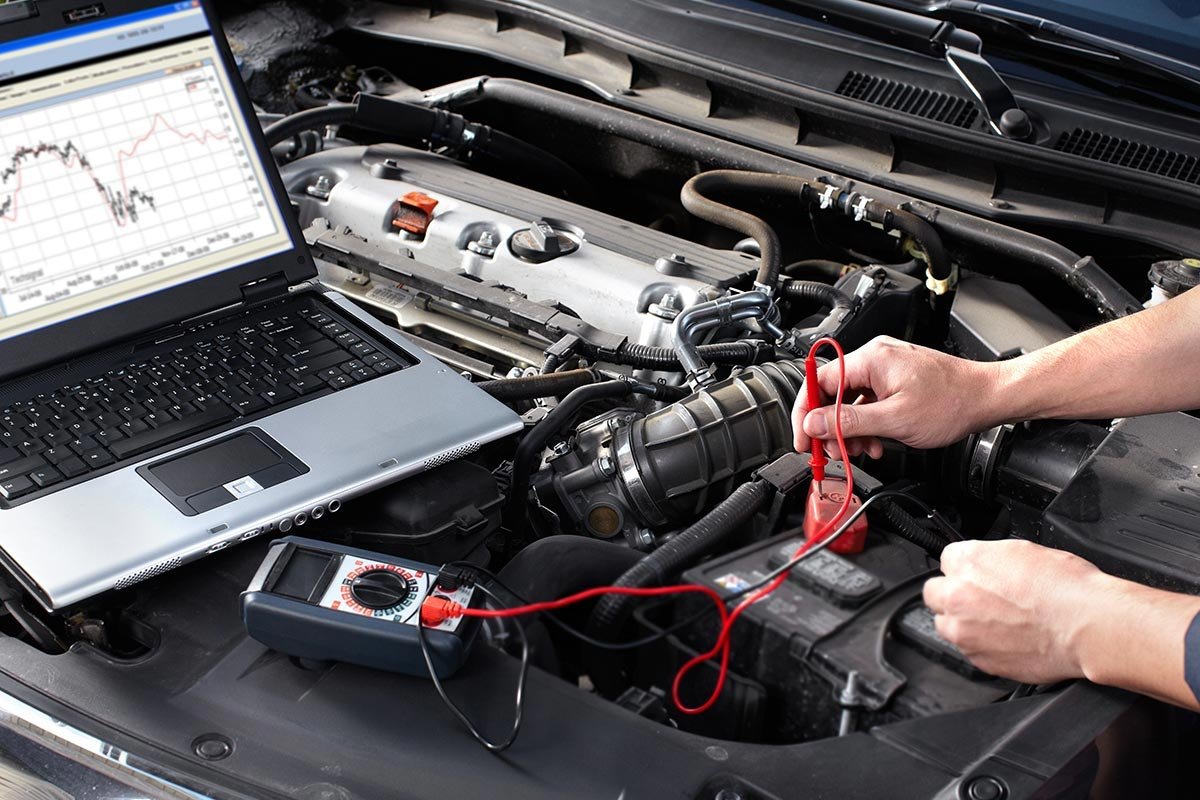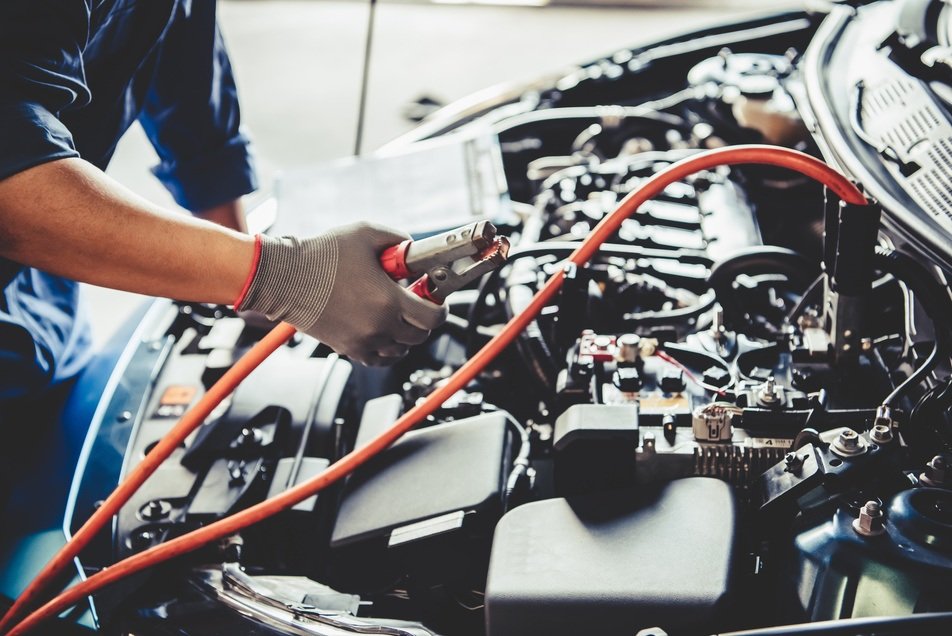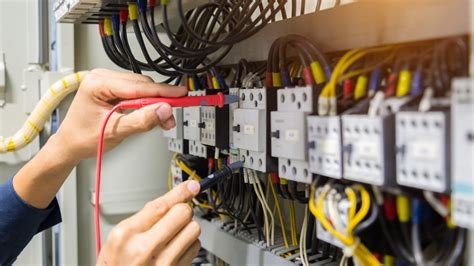Learn all about electrical system repair for your car. Discover common issues, diagnosis tips, and repair solutions to keep your vehicle running smoothly.
If your car’s electrical system giving you trouble, don’t worry. You’re in the right place. Electrical system repair can be tricky, but knowing some basics helps a lot. First, we will look at the main parts of your car’s electrical system. Then, we dive into common problems like battery issues and alternator failures.
We’ll also show you how to diagnose these problems and fix them. Finally, we will share tips to prevent future issues and decide when to get professional help. Stick around to learn how to keep your car’s electrical system in top shape.
Understanding Car Electrical Systems
To effectively manage car electrical system repairs, it’s crucial to understand the system’s basic components and how they work together.

Components of an Electrical System
The car electrical system includes several key parts:
- Battery: This component stores electrical energy and supplies power to the vehicle’s electrical system.
- Alternator: It generates electrical power to recharge the battery and support the car’s electrical needs.
- Fuse Box: Houses the fuses that protect electrical circuits from overload.
- Wiring Harness: A bundle of wires that connects various electrical components.
- Voltage Regulator: Maintains a stable voltage level to protect the electrical system.
How Car Electrical Systems Work
The electrical system in a vehicle functions through a cycle of power generation and distribution. The alternator generates electricity, which is then distributed throughout the vehicle to power components and recharge the battery. This process ensures that the car’s electrical system operates smoothly.

Common Electrical System Issues
Several issues can affect a car’s electrical system. Here’s what to look for:
Battery Problems
- Symptoms of a Failing Battery: Difficulty starting the car, dim headlights, or electrical components malfunctioning.
- Causes of Battery Issues: Aging battery, poor connections, or extreme temperatures.
Alternator Failures
- Signs of Alternator Issues: Warning lights on the dashboard, flickering lights, or a dead battery.
- Effects on Battery and Car Performance: A faulty alternator can lead to battery drain and poor vehicle performance.
Fuse Box and Fuses
- Identifying Blown Fuses: Check for burnt or broken fuses in the fuse box.
- Impact of Fuse Failures: Blown fuses can cause electrical components to stop working.
Wiring and Connectors
- Common Wiring Problems: Frayed or damaged wires, poor connections.
- Issues with Electrical Connectors: Corrosion or loose connectors can disrupt electrical flow.
Diagnosing Electrical System Problems

Accurate diagnosis is key to effective Electrical System Repair. Use these techniques:
Using Diagnostic Tools
- Types of Diagnostic Tools: Multimeters, OBD-II scanners.
- How to Use Them Effectively: Follow manufacturer instructions to identify electrical issues.
Reading Electrical Codes
- Understanding Diagnostic Codes: Interpret codes to find specific issues within the electrical system.
- Interpreting Error Messages: Use the codes to guide repairs or replacements.
Visual Inspection Techniques
- Checking for Obvious Signs of Damage: Look for melted wires, burnt fuses, or loose connections.
- Importance of Thorough Visual Checks: Regular inspections can prevent major problems.
Repairing and Replacing Electrical Components

Addressing issues involves repairing or replacing faulty parts. Here’s how to Electrical System Repair:
Replacing a Faulty Battery
- Steps for Battery Replacement: Disconnect old battery, install new one, ensure secure connections.
- Choosing the Right Battery: Select a battery that matches your vehicle’s specifications.
Fixing Alternator Issues
- How to Repair or Replace an Alternator: Remove old alternator, install a new one, and check for proper operation.
- Cost Considerations and Professional Help: Compare repair costs and consider professional services for complex issues.
Addressing Fuse Box Problems
- How to Replace Fuses: Remove the blown fuse, insert a new one with the same rating.
- Repairing or Replacing the Fuse Box: If the fuse box itself is damaged, it may need replacement.
Repairing Wiring and Connectors
- Common Repair Techniques: Soldering connections, replacing damaged wires.
- When to Replace Wiring and Connectors: If Electrical System Repair are not feasible, replace with new parts.
Preventing Electrical System Failures
Regular maintenance can help avoid future problems and Electrical System Repair.
Regular Maintenance Practices
- Importance of Routine Checks: Regular inspections can catch issues early.
- Recommended Maintenance Schedule: Follow manufacturer recommendations for electrical system maintenance.
Tips for Prolonging Component Life
- Best Practices for Battery Care: Keep terminals clean, check charge regularly.
- Ensuring Proper Alternator Function: Regularly check belt tension and alternator connections.
Upgrading Electrical System Components
- Benefits of Modern Components: Newer parts can offer improved performance and reliability.
- Considerations for Upgrades: Ensure compatibility with your vehicle’s existing systems.
Cost and Professional Help

Understanding Electrical System Repair costs and finding the right help is essential.
Estimating Repair Costs
- Average Costs for Common Repairs: Battery replacement, alternator repair, fuse box repair.
- Factors Affecting Repair Costs: Parts, labor, and the complexity of the issue.
Choosing a Professional Mechanic
- What to Look for in a Repair Service: Experience, reviews, and certifications.
- Questions to Ask Before Hiring: Inquire about repair procedures, warranties, and costs.
DIY vs. Professional Electrical System Repair
Deciding between DIY and professional repairs can depend on the situation.

When to Attempt DIY Repairs
- Situations Suitable for DIY Fixes: Simple issues like fuse replacement or battery changes.
- Necessary Tools and Skills: Basic tools, knowledge of car electrical systems.
Knowing When to Seek Professional Help
- Signs That Indicate Professional Intervention: Complex issues or persistent problems.
- Benefits of Professional Repairs: Expertise, accurate diagnosis, and warranty on work.
To sum up, understanding your car’s electrical system is key to preventing and fixing problems. Regular checks and timely Electrical System Repair will help keep your vehicle running smoothly. If you found this guide helpful, please leave a comment, share it with others, or explore more content on our website for additional tips and advice.
FAQs about Electrical System Repair
What are the common signs that my car’s electrical system needs repair?
If your car’s electrical system is failing, you might notice several key symptoms. Common signs include difficulty starting the car, dim or flickering lights, and malfunctioning electrical components like the radio or windows. These issues often indicate problems with the battery, alternator, or wiring. Observing these signs early can prevent more severe damage and costly repairs.
How do I diagnose electrical problems in my vehicle?
Diagnosing electrical issues in your car involves a few crucial steps. Start by using a multimeter or an OBD-II scanner to check for error codes and measure voltage levels. Perform a visual inspection to look for damaged wires or loose connections. Accurate diagnosis is essential to pinpoint the exact problem and apply the correct fix.

Can I fix electrical system problems myself or should I get a professional?
Simple issues like replacing a blown fuse or changing a battery can be handled as DIY projects. However, more complex problems involving the alternator or wiring harness are better left to professionals. They have the tools and expertise to ensure a proper repair and avoid further damage to your vehicle’s electrical system.
What are the average costs for repairing a car’s Electrical System Repair?
Repair costs can vary depending on the issue and your vehicle. On average, replacing a battery may cost between $100 and $200, while alternator repairs can range from $300 to $500. Electrical System Repair or replacing the fuse box or wiring harness can be more expensive, often exceeding $500. It’s best to get a detailed estimate from a repair shop to understand the specific costs for your situation.
How can I prevent electrical system issues in my car?
Preventing electrical system problems involves regular maintenance and care. Inspect your battery and connections frequently to ensure they are clean and secure. Check the alternator and wiring for signs of wear or damage. Following the recommended maintenance schedule for your vehicle and addressing small issues promptly can help extend the lifespan of your car’s electrical system.